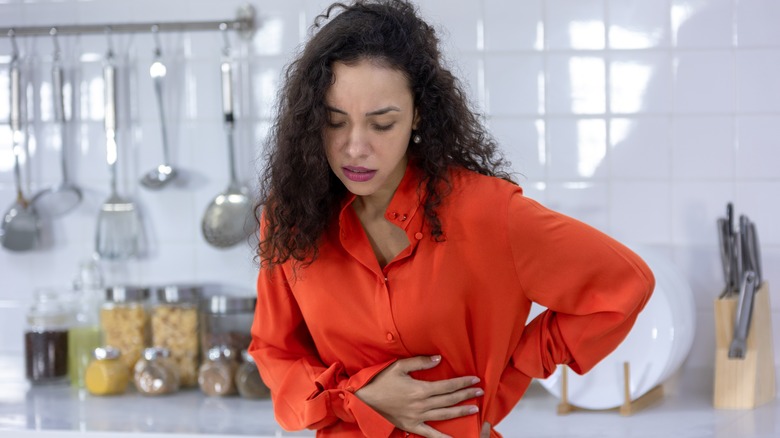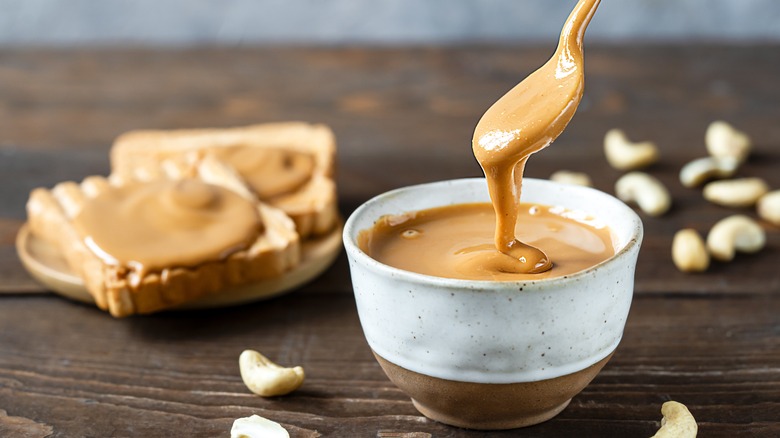
Enjoying a moist peanut butter cookie, savoring a drizzle of Thai peanut sauce, or indulging in a scoop of peanut butter directly from the jar brings us nothing but sheer happiness. However, for some individuals, this creamy nut butter can lead to an upset stomach. While delicious, if peanut butter causes gas and rumbling in your stomach, it might suggest a sensitivity to some of its natural compounds or simply that you’re consuming more peanut butter than your body can handle.
Peanut butter can be challenging to digest on its own. Healthline points out that chunky peanut butter, in particular, may take longer for the body to break down due to its high fat content. Experts at Orlando Health explain that although this popular toast topping contains healthy fats (unlike the saturated fats found in fried foods), overconsumption can leave you feeling gassy and bloated when it ferments in the gastrointestinal tract (via Nutrients).
Peanut butter’s high fiber content or a food sensitivity may be causing your gas

Peanut butter is also high in fiber. While this can aid in making bowel movements quicker and easier for those with constipation, fiber can also result in passing more gas than desired. Like the fat content in peanut butter, fiber isn’t processed by the body. Instead, the bacteria in our microbiome break it down, releasing gas in the process, as explained by MedicineNet.
However, fiber isn’t the only compound in peanut butter that might cause stomach issues. “You may experience a stomach ache if you have a food sensitivity to salicylates and amines,” registered dietitian nutritionist Gillean Barkyoumb tells Eat This, Not That! Salicylates are natural chemicals found in peanut butter that, when consumed excessively (or even in small amounts occasionally), can lead to gas, diarrhea, abdominal pain, and more in individuals with salicylate sensitivity (via Healthline). These chemicals exist in both natural and synthetic forms. Similarly, amines are natural chemicals whose content increases with the aging and fermentation of foods (via Naturopath Life Wellness Centre). Peanuts contain high levels of amines, and those with amine sensitivity may experience gastrointestinal discomfort.
How to reduce flatulence from eating peanut butter

Depending on the cause of your peanut-butter-related gas, different symptom-relief strategies may be recommended. Those with salicylate or amine sensitivities might find it best to avoid peanut butter and other foods high in these compounds, although some individuals may tolerate small amounts in moderation. Consult your doctor if you suspect a food sensitivity or intolerance.
If gas is unrelated to a food sensitivity, consider experimenting with various fiber-rich foods to identify if some cause more gas than others. MedicineNet notes that certain types of fiber, such as those in fruits and vegetables, are more closely associated with increased flatulence. If peanut butter is one such food for you, try reducing your intake or eliminating it temporarily. When reintroducing peanut butter into your diet, ensure you drink plenty of water to support optimal digestive health. Additionally, Drugs.com suggests that smooth peanut butter is less likely to cause gas, so consider choosing creamier varieties over chunky ones, reducing your overall consumption, or temporarily eliminating peanut butter altogether.




